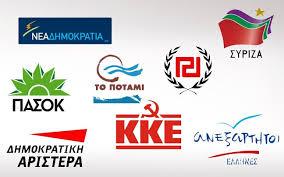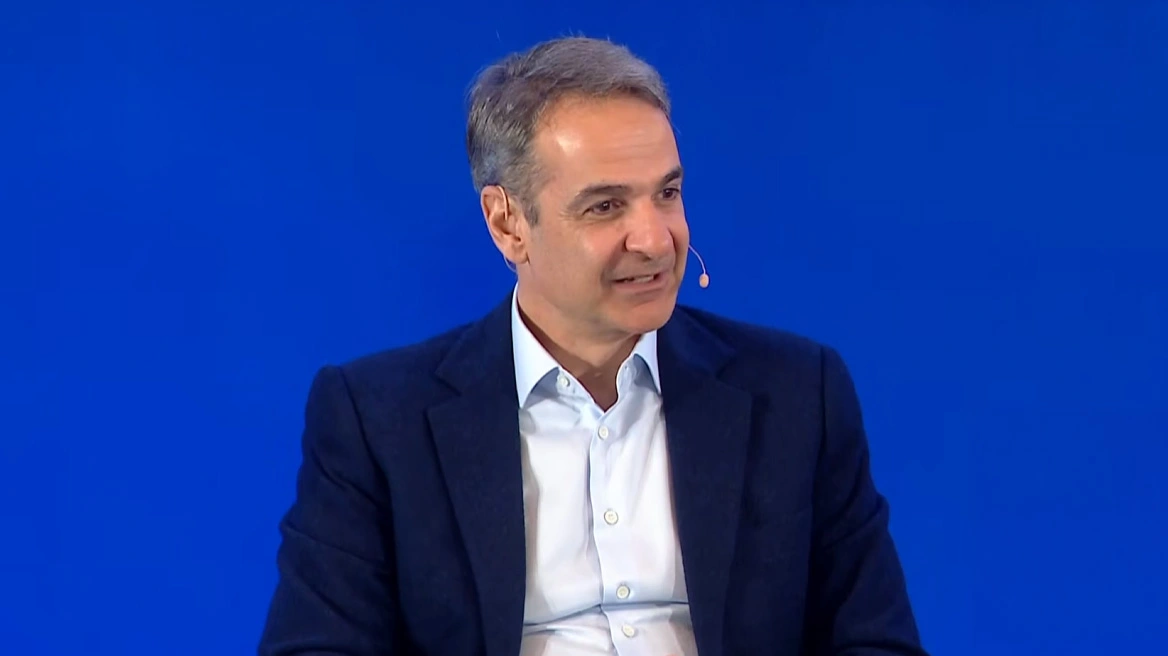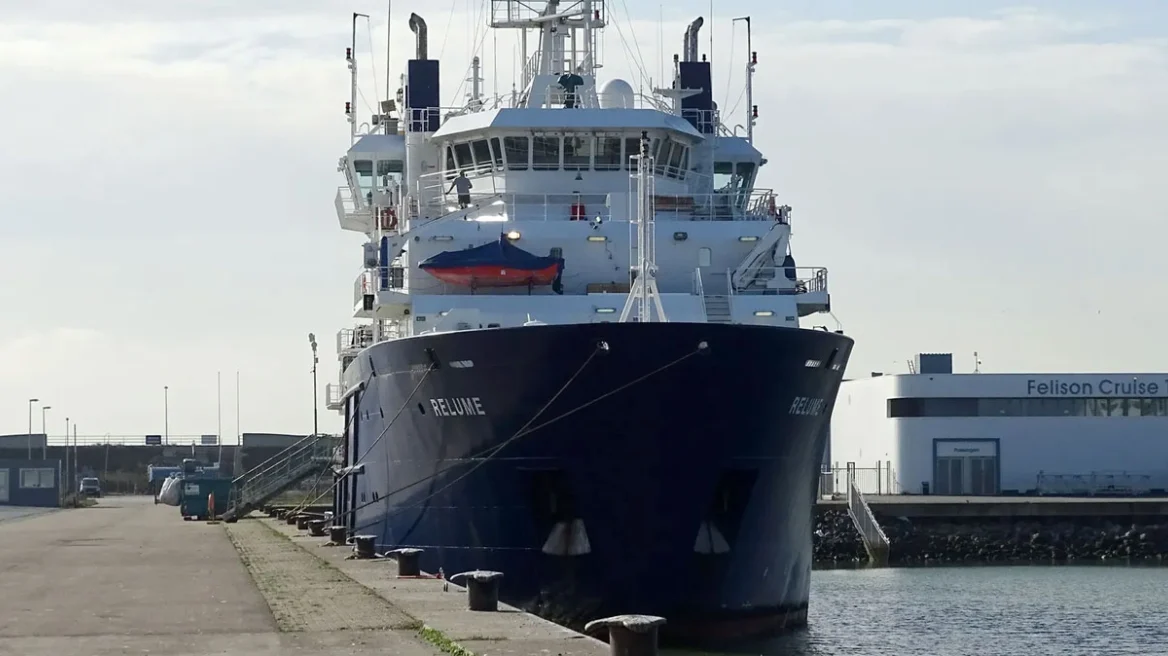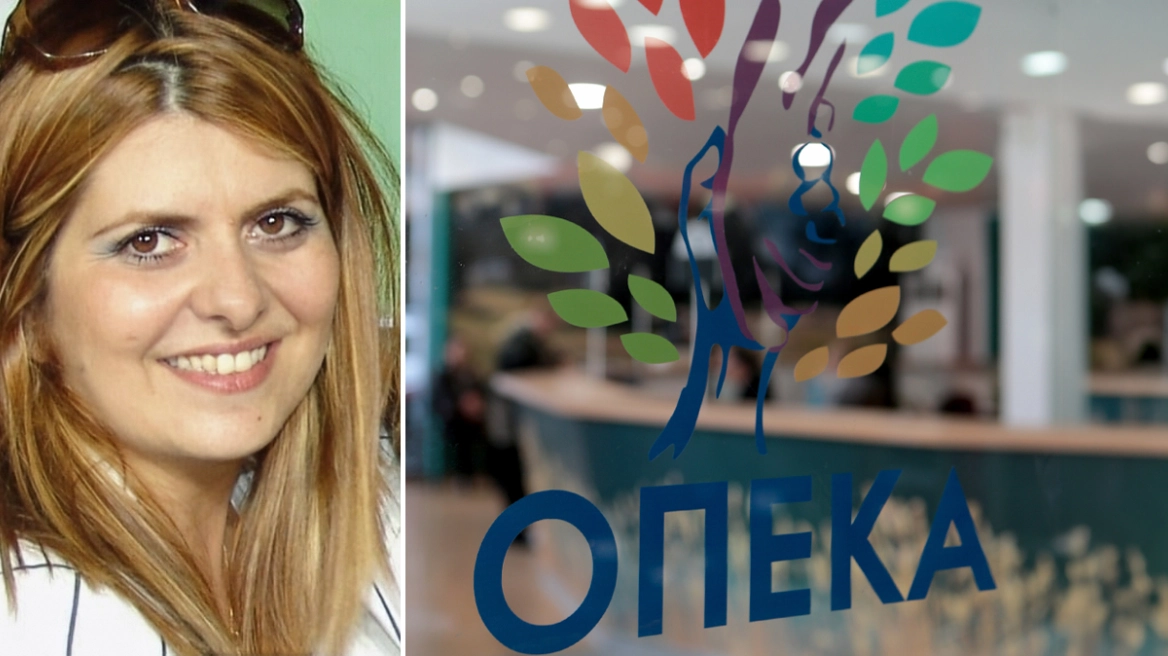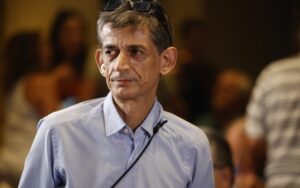New Democracy
May 2012 ELECTION: 18.85%
June 2012 ELECTION: 29.66%
Party leader: Antonis Samaras
The country’s mainstream center-right party has alternated in power with rival PASOK since its founding by late Greek statesman Constantine Karamanlis in 1974. Antonis Samaras assumed the party’s helm after an internal party election and following a landslide election defeat endured in October 2009 by the elder Karamanlis’ nephew, then incumbent premier Costas Karamanlis. Samaras, a one-time foreign minister, had himself left ND in 1993 over a row with then PM Costas Mitsotakis. He formed a small, rightist party (Political Spring) that initially entered Parliament only to completely fizzle out in the late 1990s. Under Samaras, ND was “first-past-the-post” in a May 2012 election, albeit recording the ND’s lowest-ever election tally, a mere 18.85 percent of the general vote. ND rebounded a month later to finish with 29.66 percent, again coming in first. As main opposition leader between late 2009 and October 2011, the 63-year-old Samaras pledged to find a “better mix” vis-à-vis harsh austerity measures imposed by Greece’s international creditors – collectively known as the “troika”. He formed a government in June 2012 with the support of socialist PASOK and the Europe-friendly Democratic Left (DI.MAR) party, allocating ministerial posts to the two junior coalition partners as well. His government mostly toed the line in terms of implementing a troika-mandated bailout regime, detailed in the so-called “memorandums”, i.e. the previous Greek governments’ obligations as agreed to with its creditors. His ND-led government implemented certain reforms, like labor market liberalization, but failed to push through others, such as large-scale privatizations. The Greek economy witnessed a return to growth in the third quarter of 2014 (1.9% yoy) after six years of decline, when GDP shrunk by an unprecedented one-fourth. Samaras’ announcement of a premature exit from the bailout package was met negatively by global financial markets in September 2014 and generated negative comments by European leaders. His gambit to achieve the election, by Parliament, of a new president of the republic (a ceremonial post) and thus avoid a snap election flopped, resulting in this Sunday’s vote. Samaras and ND’s best hope, given that the party is running behind SYRIZA in the polls, is to tap into a still large pool of undecided voters.
Radical Left Coalition (SYRIZA)
May 2012 ELECTION: 16.78%
June 2012 ELECTION: 26.89%
Party leader: Alexis Tsipras
Leftist leader Alexis Tsipras first shot to national prominence as an Athens mayoral candidate in 2006, when he took a respectable 10-percent of the vote. He was elected as president of Synaspismos, a left-wing Parliament-represented party that quickly merged with several other smaller leftist, pro-ecology and radical left parties to form the SYRIZA coalition. Riding on the Greek public’s sharp discontent from six years of economic collapse, SYRIZA went from a paltry 4.9 percent of the vote in the October 2009 election to 26.89 percent in June 2012. It is currently leading opinion polls in the country, with some forecasts give the anti-austerity party figures in the mid-30-percent range. Tsipras, once viewed by mainstream governments in Europe and other developed countries as a firebrand leftist due to his promises to “tear the memorandums in half” and unilaterally slash Greece’s external debt, later embarked on several international trips for contacts with foreign leaders, including with German leadership, a move that ameliorated his image abroad. His party still pledges to call an international summit on cutting the Greek debt and to end the bailout scheme, along with overturning a handful of privatizations, restoring slashed wages and pensions and eliminating an unpopular property tax. Nevertheless, SYRIZA and Tsipras still must translate opinion poll numbers into actual cast ballots, and in large enough numbers to form a majority government. If the party comes in first and if it forms a government – majority or coalition – it will then face a Herculean task: achieving better terms from the country’s creditors and eurozone partners in tandem with finding fresh cash to implement its hefty pre-election spending promises. Finally, one handicap the party has in trying to form a coalition government is the fact that SYRIZA’s top cadres have repeatedly ruled out post-election cooperation with “pro-bailout parties”.
To Potami (The River)
May 2012 ELECTION: Didn’t exist
June 2012 ELECTION: Didn’t exist
Party leader: Stavros Theodorakis
Greece’s “trendiest” new political party formation was established by a well-known television journalist and current affairs presenter known for hauling a trademark knapsack during camera walk-aways and his chummy manner with interviewees. Stavros Theodorakis’ new party takes a distinctly eclectic and centrist approach, aiming to attract young and dissatisfied professionals, undecided voters as well as pro-Europe leftists put off by mainstream parties viewed as part of Greece’s archaic political establishment. Potami, which means “river” in Greek, is an odds-on-favorite to finish at least in fourth place, with many polls placing it third. Such a prospect would mean a role as “kingmaker” in case SYRIZA or ND fail to garner enough of the general vote to form a majority government. Though the party mostly relies on a social-democrat platform, it also promotes certain liberal (in the European sense) reforms.
Golden Dawn
May 2012 ELECTION: 6.97%
June 2012 ELECTION: 6.92%
Party leader: Nikolaos Michaloliakos
Located on the extreme right of Greece’s political specter, Golden Dawn (Greek: Chryssi Avgi) exploded from obscurity and squarely emerged as a “neo-Nazi bogeyman” on the 21st century European landscape after the repeat Greek elections of May-June 2012. Riding voters’ dissatisfaction with the unprecedented recession in the country, popular anger with mainstream politicians and a rising tide of xenophobia related to a perceived increase of mostly Third World undocumented migrants in several inner city Athens’ neighborhoods, the party went from 0.29 percent (nearly 20,000 voters) in October 2009 to 6.97 percent in June 2012, fielding 18 deputies in Greece’s parliament. The party’s leadership disputes the fact that it is a neo-Nazi front, despite past literature and photos showing long-time members’ fondness for Nazi slogans and symbols. At present, most of its deputies, including party leader Michaloliakos, are in pre-trial custody accused of various felonies related to charges of establishing and operating a criminal organization and racketeering. Golden Dawn has flatly stated it will not cooperate with any party in Parliament, not that any other political party is expected to ask.
Communist Party of Greece
May 2012 election: 8.48%
2012 ELECTION: 4.50%
Party leader: Dimitris Koutsoumbas
The Communist Party of Greece (KKE) represents Greece’s “old guard” communists. KKE is the oldest political formation in existence in the east Mediterranean country. It stands out, amongst Parliament-represented parties in most of Europe, for its unabashed insistence on orthodox Marxism-Leninism and Stalinist organization. Feared and vilified for decades by political opponents on the Greek right and center for its role in the poisonous Civil War (1946-49) – and outlawed until 1974 – its longevity, strict party discipline and persistence on matters of ideology, even in the face of the Soviet Union’s collapse, have earned it a semblance of venerability on the Greek political scene. Conversely, many critics and one-time supporters view it as a “relic” of a bygone political era. Expectedly, it is against the austerity packages mandated by the IMF, ECB and EC because, quite simply, it is against Greek membership in all three institutions. Its leitmotifs are opposition to “big capital”, the “imperialist new order” and cooperation with what it calls the capitalist system’s “reserves”, i.e. SYRIZA. Exceeding a 5-percent threshold should be considered a success for new KKE leader Dimitris Koutsoumbas, 59, a career communist.
Kinima
2012 ELECTION: didn’t exist
Party leader: George Papandreou
The Movement of Democratic Socialists (Kinima in Greek) is a party founded by former prime minister and PASOK party leader George Papandreou. It’s formation was the culmination of three years of discontent, on Papandreou’s part, towards his successor at PASOK’s helm, outgoing Deputy PM Evangelos Venizelos.
Papandreou’s PASOK’s swept to power in an October 2009 election landslide only to implode under the weight of the economic collapse and harsh troika-mandated austerity measures. Papandreou was forced out as prime minister in late 2011 and stepped down as president of the party established by his father in 1974, three-time premier Andreas Papandreou.
The younger Papandreou’s new party features the standard European social-democrat platform, tailored to a Greek audience, plus his “center-piece” proposal for the establishment of European bonds to boost growth and relieve lending pressure on weaker euro zone members. If Kinima exceed the 3-percent threshold to enter Parliament, most of the voters it attracts will have switched over from PASOK. Heading into the weekend, opinion poll results mostly showed that Kinima would just miss the threshold for Parliament.
PASOK
May 2012 ELECTION: 13.18%
June 2012 ELECTION: 12.28%
Party leader: Evangelos Venizelos
PASOK, the widely used acronym for the Panhellenic Socialist Movement, was in power in Greece for 22 out of 40 years since the restoration of democracy in Greece in 1974. Founded and led by the late Andreas Papandreou, a charismatic but mercurial US-trained economist and professor and himself the son of a prime minister, it began its legendary course as a left-leaning socialist party that dominated the country’s political scene in the 1980s. It first tasted election victory in 1981 with 48 percent of the vote. It developed into a more social-democratic mainstream European party in the 1990s under two-time prime minister Costas Simitis, from 1996 to 2004. George Papandreou, Andreas’ son, was tapped as the new PASOK leader in February 2004. He suffered two election defeats to New Democracy (2004 and 2007) before finally winning in 2009.
However, PASOK’s electoral triumph (44 percent) in October 2009 was quickly forgotten after six years of punishing recession and the accompanying social and political turmoil. Current leader Evangelos Venizelos, 58, has been a coalition partner of conservative ND since June 2012. That role has cost him political capital and popularity, something he could ill afford, given that he is viewed as one of the shrewdest but least liked Greek politicians. Venizelos has repeatedly complained that PASOK has suffered the biggest political cost in defending the bailout packages. In the days leading up to the Sunday election, he stated that he would be open to post-election cooperation with a first-place SYRIZA, something the latter’s leadership coolly dismissed.
Independent Greeks
May 2012 ELECTION: 10.6%
June 2012 ELECTION: 7.5%
Party leader: Panos Kammenos
A right-of-center, anti-bailout party founded by a maverick ND deputy ahead of the 2012 elections, this party may or may not squeeze past the 3-percentage point figure needed for Parliament representation. Almost half of its 20 deputies, elected in the June 2012 election, left the party over the last two and a half years, mostly dissatisfied with firebrand party founder Panos Kammenos. Despite a nationalist foreign policy worldview and an emphasis on “family values” and “law and order” issues, such as combating illegal immigration towards Greece, Kammenos, 49, appears more than eager to join a SYRIZA-led coalition.
Democratic Left (DI.MAR)
May 2012 ELECTION: 6.3%
June 2012 ELECTION: 6.1%
Party leader: Fotis Kouvelis
This pro-Europe left-of-center party emerged in 2010 when several Synaspismos cadres of the so-called “renewalist” wing broke off to create the Democratic Left (DI.MAR), led by veteran politician Fotis Kouvelis. The party elected 17 deputies in the June 2012 election only to lose many of its best-known MPs ahead of the snap poll on Sunday. Dissatisfaction with its participation in the pro-bailout Samaras coalition government and its leadership’s failure to formulate a concrete alternative to the government’s policies, on the one hand, and SYRIZA’s “no-holds-barred” opposition, on the other, thoroughly drained its reservoir of supporters, to the point where it is almost guaranteed not to re-enter Parliament.
Ask me anything
Explore related questions
